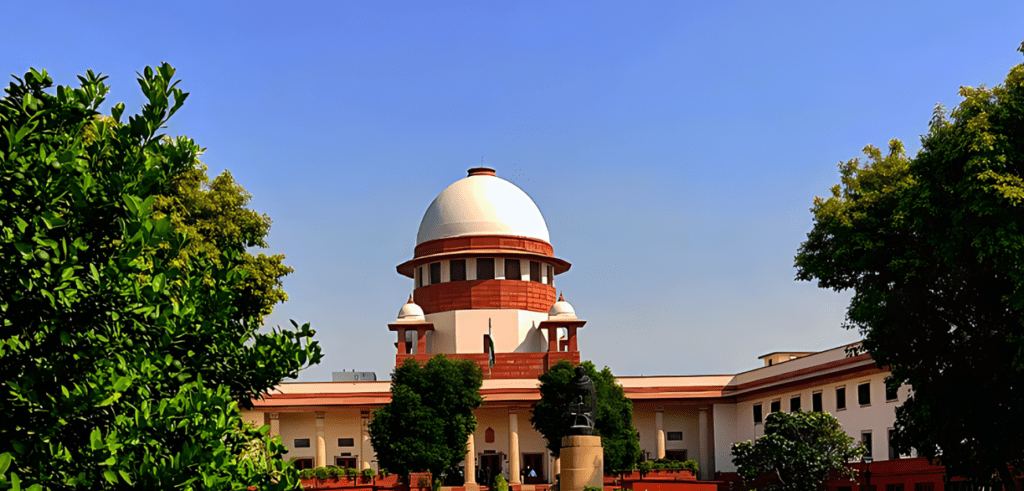
During the hearing of petitions seeking the legalization of same-sex marriages, the Central government informed the Supreme Court on Wednesday that it intends to set up a committee led by the cabinet secretary to review the suggestions put forth by the LGBTQIA community regarding the challenges they face in same-sex cohabitation. Solicitor General Tushar Mehta made the statement, stating that the government is open to addressing the legitimate concerns of the LGBTQIA community through administrative means and that the committee’s formation would require inter-ministerial coordination. He confirmed that the suggestions made by the petitioners will be taken into account and addressed.
The Indian Centre informed the Supreme Court that it will establish a committee led by the Cabinet Secretary to address the “human concerns” of same-sex couples. However, the government will not legally recognize their relationship as a marriage.
The five-judge Constitution Bench, headed by Chief Justice of India D Y Chandrachud, found the government’s proposal to be a “very fair suggestion”. They expressed that it would represent a significant advancement in the gay rights movement and be a “building block for the future.” The Court then inquired whether the petitioners still wished to continue pursuing their demand for a declaration of their right to marry under the Special Marriage Act (SMA), 1954, at this point.
India’s Supreme Court is currently presiding over a series of petitions that seek to establish the legal validity of same-sex marriages in the country. A panel of judges known as the Constitution Bench, headed by Chief Justice DY Chandrachud, is overseeing the proceedings. The bench includes Justices Sanjay Kishan Kaul, S Ravindra Bhat, PS Narasimha, and Hima Kohli.
Several petitions have been filed, seeking legal recognition of same-sex marriages in India. The petitioners argue that the LGBTQIA+ community should have the same right to marry a person of their choice as any other citizen. The petitions have been met with opposition from the Central government.
The Central government has filed an affidavit with the Supreme Court stating that same-sex individuals living together as partners and engaging in sexual relationships cannot be equated with the traditional Indian family unit. The government argues that the concept of an Indian family unit involves a biological man and woman, who produce children through marriage.
During the previous hearing of the same-sex marriage case on April 27, the five-judge Bench had inquired about the Centre’s willingness to provide security, social welfare, and prevent ostracism for same-sex couples, even if they were not granted legal recognition of marriage. Solicitor General Mehta responded on Wednesday by stating that the government was positive about addressing these concerns administratively. Mehta announced that a committee, led by the Cabinet Secretary, would be formed to examine the issue and invited the petitioners to share their suggestions, which the government would consider if legally feasible.
Senior Advocate Singhvi noted that the committee’s suggestions would represent only an administrative change and not a legal one. He added that the government should view this as a positive step towards a convergence rather than a substitute for a larger solution. Mehta responded by stating that the government would consider all possible modes and methods of addressing the problem, including changes in law, if necessary.
Justice Bhat reminded Singhvi that sometimes small beginnings can lead to substantial progress in the long run.
In response to the Centre’s proposal for the formation of a committee to address the human concerns of same-sex couples, the Chief Justice of India, D Y Chandrachud, acknowledged that the government’s suggestion to provide conditions of security and social welfare for same-sex couples would be a significant advancement in recognizing cohabitory relationships of same-sex couples. He added that practical issues such as the right to reside together, bank accounts, and insurance policies can be resolved by the government, and that this step forward would be beneficial for same-sex couples. While the court will ultimately have to decide on the matter, the Chief Justice acknowledged that the government’s first step would be a substantial improvement over the current situation.
Occurrences so far
During the hearing on April 27th, the Supreme Court of India expressed that it believes granting legal recognition to same-sex marriages is a matter for the legislature. However, the Court’s aim is to ensure that same-sex couples are granted social and other benefits, as well as legal rights, without the use of the term “marriage.”
The Court urged the government to address the issue, stating that if the judiciary becomes involved, it would become a legislative matter. The judges also questioned how the government plans to provide security and social welfare for cohabiting same-sex couples and emphasized the importance of preventing discrimination against such relationships.
written by- Sohini Chakraborty intern under legal vidhiya.





0 Comments